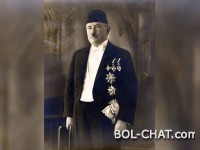Mehmed Spaho, a Bosniak leader between the two world wars
With the arrival of Austro-Hungarians on the territory of Bosnia and Herzegovina, a series of social and political changes began.
The attitude of Bosniak politicians to the authorities changed according to the current political circumstances, so in the beginning groups of prominent Bosniak intellectuals, led by Sheriff Arnautovic, represented the idea of the autonomy of Bosnia and Herzegovina under the Ottoman Empire, that, due to its weakening in the Balkan Wars , this group changed attitudes. Arnautovic, as one of the prominent Bosniak leaders in that period, continued to advocate the idea of the autonomy of Bosnia and Herzegovina, but now within the framework of Austria-Hungary.
Contrary to the "older" Bosniak political power, to which Arnautovic belonged, there were younger intellectuals who acquired education outside of Bosnia and Herzegovina. Among them were Mehmed Spaho, the future leader of the Yugoslav Muslim Organization, the largest Bosniak political option between the two world wars. Professor Husnija Kamberović, author of the book Mehmed Spaho: (1883-1939): Political biography , points out that Spaho, as a member of the City Council of Sarajevo, hinted that he would become a leading political figure among Bosniaks, but that the way that this prominent intellectual was going was not it was not so easy.
Wisely he built a political career
On the other hand, he openly expressed patriotism and loyalty to the Habsburg monarchy (Spahini's opponents even noticed that it was "speculative patriotism"), and then to the new Yugoslav state after 1918. Spaho gradually, but he wisely built his political career and, within a decade of political work, became a leading figure among the Bosniaks, "Kamberovic noted.
Although the younger political power, led by Spah, supported the entry of Bosnia and Herzegovina into the Kingdom of Serbs, Croats and Slovenes, the Bosniaks were in a very unfavorable position. Looting, violence and other forms of segregation were increasingly frequent. Such a situation required the political organization of Bosniaks, who justifiably began to fear their survival in the new state.
"The position of Bosniaks in the Kingdom of the SHS was determined by their poor participation in the process of creating Yugoslavia. Although they supported the very act of creating a new state, including the positive attitude of reisu-l-ulema Džemaludin ef. Čaušević, Muslims, and especially landowners, were the first few months exposed to violence, robbery, and generally placed in a position where their physical survival and religious freedom are endangered. This unsettled situation opened up a space for political action, and Spaho used it greatly: he entered the Yugoslav Muslim Organization, quickly became minister and factually a key political figure, not only among Muslims, but almost without any dispute in Bosnia and Herzegovina could be resolved without him.Tacticized between the central government in Belgrade and the organized opposition in Zagreb,between [Nicholas] Pašić and [Stjepan Radić], between centralism and federalism, and in all of this, sought ways to realize the two fundamental goals of its political action: to preserve the integrity of Bosnia and Herzegovina and to preserve the autonomy of the Islamic community and its institutions ", emphasizes Kamberović.
'Pasha from Bosnia'
During the Six Day War dictatorship in 1929, Spaho temporarily withdrew from politics. During the duration of this state of emergency in the Kingdom, SHS Spaho dealt with filatelia, and occasionally met with political ideologues, which was under the scrutiny of the then authorities. When the situation in the former state began to stabilize again, Spaho became involved in political processes, and his fight for Bosnia and Herzegovina was becoming more and more active. Due to his statements and attitudes, he spent a short time in prison, along with a political figure, Halid Hrasnic.
For many years he led a political party - the Yugoslav Muslim Organization, which won virtually all Muslim votes in all elections. His political opponents, who were on the historical scene at the time of dictatorship, quickly disappeared from the political arena. Spaho has been persistently building his career, and some even began to call him a "pasha from Bosnia," because nothing could be resolved in Bosnia-Herzegovina without Spahin's attitude, "Kamberovic concludes.
Natural death or murder
Spahina's sudden death caused a lot of public controversy. His influence among the Bosniaks is one of the reasons why the public is presumed to have been killed. Nevertheless, Kamberović is not the advocate of conspiracy theories, but is closer to the thesis of Spahin's natural death.
"There are different interpretations, but I am not in favor of the conspiracy theory, and I am closer to the fact that it is natural death than murder. It is true that he opposed the way in which the [Serbian-Serbian] misunderstanding was resolved by [Dragiša] Cvetković - [Vladko] but in my opinion, Spahin's forces in the Yugoslav framework were not such that he could stop this agreement, nor was his determination to disrupt this agreement so powerful that the only solution would be his liquidation. Before that, everything would coincide with his agreement. He did not endure his ill health and heart. His 56 years of life is not very much, but 25 years of active politics in such a difficult and challenging time must have left a mark on his health, "concluded Kamberovic.
- 26 Mar, 2018
- 2215 views
- No comments


